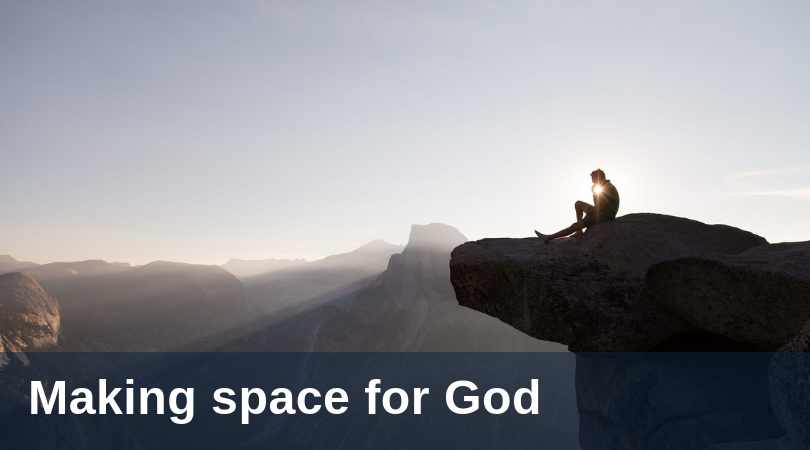
Space matters. It's an essential (but often overlooked) element of everything around us. Observing the role of space in our relationships and in music helps us see the profound value of making space for God in our lives.
The role of space in our relationships
If you watched this year’s Super Bowl, you might remember a toothpaste commercial where Luke Wilson describes himself as a “close talker.” He claims his close proximity to others is acceptable because his toothpaste is so effective. The comedic irony of the commercial is that all of us have a certain need for “personal space” regardless of the quality of our breath.
Maybe in your life, you have had that person who was standing just a little too close to you. Without even thinking, you probably backed away from the person in order to reestablish your personal space. Then of course, there are those people we welcome into our personal space: friends to hug, nephews and nieces to play and significant others to name a few. These people make us feel special and loved, so we invite them into our space. Considering these contrasts, we realize that sometimes we want space while other times we want something (or someone) in that space.
Inviting others into our space applies not only to physical space but also to time. In our lives, we fill our time with work, with cooking and eating, with talking to friends, with websites and emails and reading the news. Sometimes we put these things aside to create more space for something else, and sometimes a deadline means we have to fill the space with something that we had not anticipated.
The role of space in music
In music, just like with personal space and time, we either fill the space or let it be. In music, spaces left open are called rests, and the spaces we fill with sound are notes, chords or beats. All of music is just a complicated pattern of open space and filled space: space between notes creates melodies and chords, space between drum strikes creates a beat, etc. Good music seeks the right balance of space and filled space. I once watched a YouTube clip of a drum instructor who illustrated this by demonstrating a good way and a bad way of playing “Let It Be.” The good way was minimalist and left plenty of space (just like Ringo in the original version), whereas the bad way was flashy, too many fills and too little space.
Making space for God
Just as good music requires the right balance of space and filled space, so too do our lives. This applies at the physical, mental and spiritual levels. If we don’t create space for sleep or for exercise, we fall into poor health. If we don’t create space for mental rest, we become exhausted and irritable. If we don’t create space for prayer, we can’t hear God. The funny thing about spirituality is that God speaks to us most prominently in silence because silence is God’s native language. Silence is pure space, and in pure space God is His most “Self” because God is not bound by what He created. God simply is. When we sit quietly in prayer, we may think nothing is happening, but really we are having the deepest, richest, most interesting conversation with God!
Creating space in our lives may feel like a big waste of time, but doing so deepens the hues of everyday life. Trees that we normally ignore in our everyday routines become invitations for contemplation. Its coarse trunk, its oddly shaped limbs, its roots slurping up nutrients, its leaves taking light and creating glucose and oxygen – these thoughts and observations draw us into the deeper mystery of creation. In these moments, and especially in the moments of quiet prayer in a chapel, we find that the world, while seemingly overrun by evil and corruption, is actually breathtakingly beautiful. So don’t be a bad drummer. Don’t try to fill all your space! Make room for it, listen to it, feel it and groove with it. Let God reintroduce you to the beauty of His beat.


